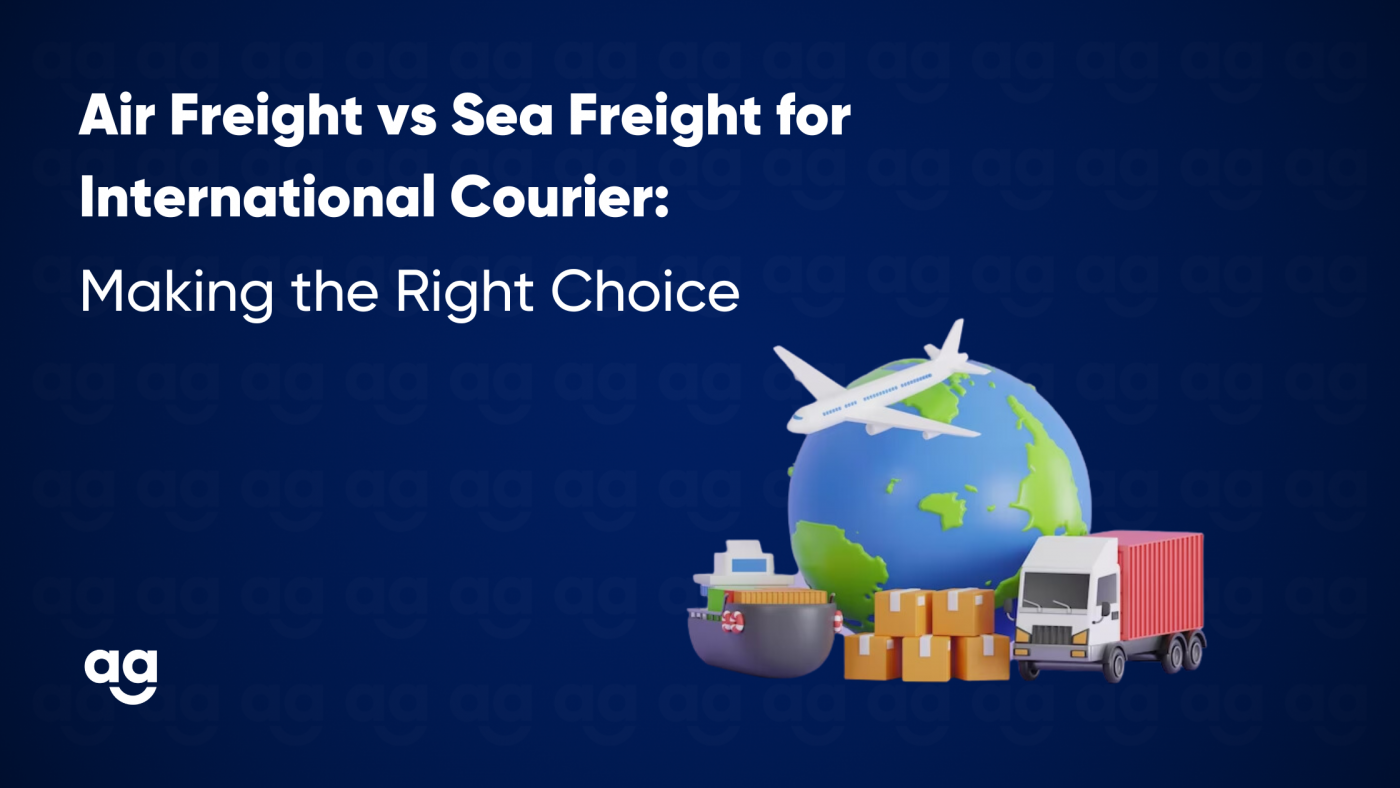Introduction
Selecting between air and sea freight for cross-border goods transportation is a crucial issue for organizations operating in the international courier services sector. The decision between air and sea freight is influenced by a number of circumstances, and each method of transportation has pros and downsides of its own.
We’ll go over the main distinctions between air and sea freight in this blog to assist businesses in making decisions that are tailored to their particular shipping requirements.
Benefits of Air Freight
Faster shipping
Air freight becomes the best option when time is of the essence. Air freight is a common choice made by international courier services for packages that need to arrive quickly. Air delivery is the best option for companies who value prompt deliveries because it drastically cuts down on travel times.
Reliable and consistent
The dependability of air freight is well known, particularly when it comes to fulfilling deadlines. Air freight is a dependable option for international couriers handling last-minute deliveries because of its consistent timetables and flexibility.
Nature of goods
Because air freight travels quickly and is kept in a controlled atmosphere, it is ideal for carrying valuable or perishable items. Products like fresh vegetables, electronics, and medications frequently require air transportation.
Benefits of Sea Freight
Helps as an economical option for large shipments
On the other side, sea freight is well known for being affordable, especially for large cargo. Sea transportation can be a viable option for enterprises that need to move bigger amounts of goods, even though it often takes longer than air transportation. The savings in transportation expenses can be significant.
Consistency in large-scale shipments
For companies handling large-scale shipments without strict schedule constraints, sea freight provides a dependable and consistent solution. Although marine routes and schedules are less predictable, bulk freight can be effectively planned and managed despite their lengthier transit times.
Economies of scale for bigger shipments
The more items you ship, the more economical sea freight becomes. Because of the economies of scale that businesses enjoy, huge shipments when speed is not the main priority can nevertheless be made profitable.
Bulk and non-perishable goods shipped by sea
When delivering big commodities that don’t need to be delivered quickly, sea freight is the preferred option. Large commodities, machinery, and non-perishable goods are frequently transported via sea freight.
Helps maintain sustainability
The environmental impact of shipping cargo by sea is often lower per tonne of cargo moved. Businesses that prioritize sustainability can find that marine freight better fits their environmental objectives.
Conclusion
The decision between air freight and sea freight in the ever-changing world of international courier services is based on the particular needs of each package. When making this important choice, businesses must carefully evaluate issues like speed, cost, the nature of the commodities, and environmental implications.
Ultimately, the secret to maximizing international courier services for the sustained prosperity of companies involved in international trade is striking the correct balance between the requirement for prompt deliveries and economical transportation.







 Shipping
Shipping







